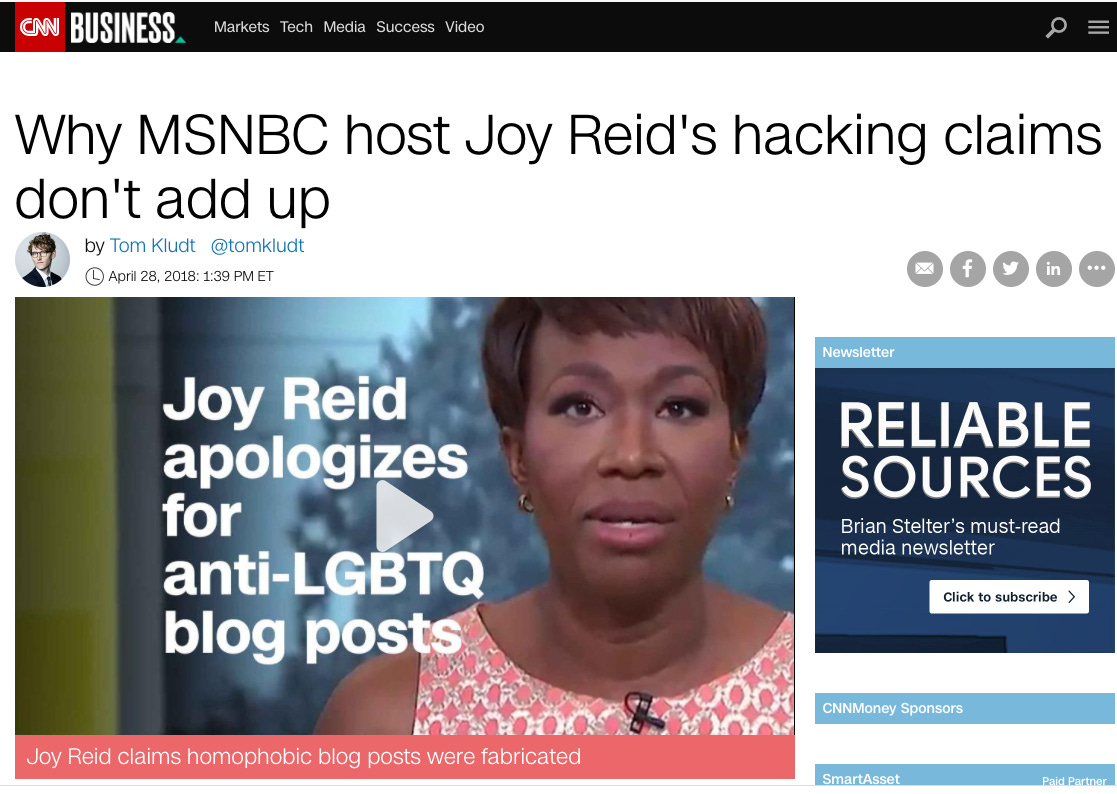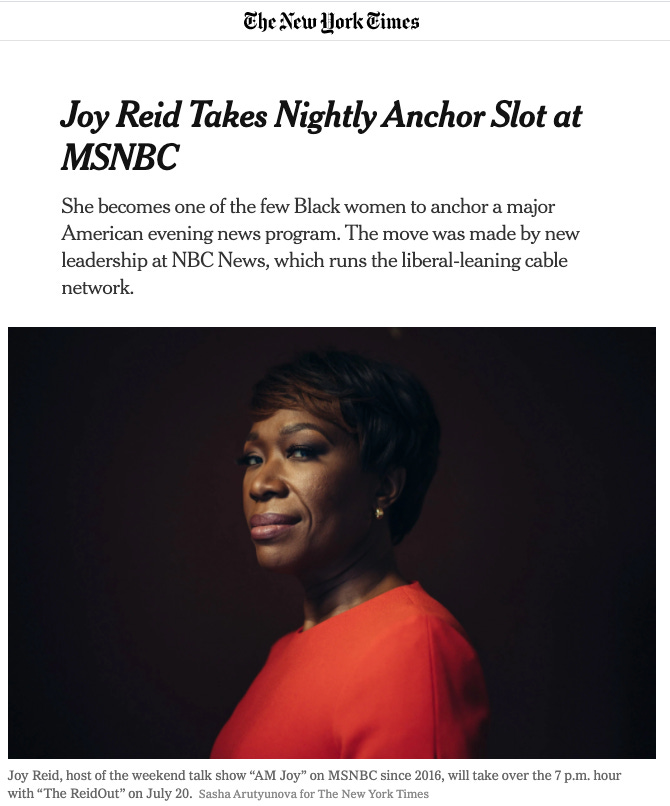CNN Is Just The Latest News Outlet To Prove Deliberate Lying Is Not An Impediment to Employment
Former Trump DHS official, now CNN analyst, Miles Taylor got caught blatantly lying on CNN's airwaves to host Anderson Cooper, but The Most Trusted Name In News™ doesn't mind at all.

Former Trump DHS official and current CNN contributor Miles Taylor lies, live on air, to CNN anchor Anderson Cooper, Aug. 2020.
In September, 2018, The New York Times published an op-ed that became an instant media sensation. The content of the opinion piece was unremarkable: banal anti-Trump agitprop. Noting “the president’s amorality,” the author wrote that Trump “is not moored to any discernible first principles that guide his decision making” and his “impulses are generally anti-trade and anti-democratic” — no different than what one reads virtually every day from that paper’s small army of relentlessly on-script anti-Trump columnists or that one hears daily on panels assembled by MSNBC or CNN.
But what triggered so much media attention was that the author of the anti-Trump denunciation was “a senior official in the Trump administration” who claimed that he and other like-minded dissidents were “resisting” and “thwarting” the elected president from inside the government. Moreover, the New York Times took the extraordinary step of granting anonymity to the author. All of that created an exciting parlor game in which media and political insiders attempted to guess the mysterious author’s identity.
Meanwhile, liberals swooned so ecstatically over the dramatic prospect of a stalwart band of unelected anti-Trump officials subverting the president from the inside as they clandestinely waved the #Resistance banner that, in just over a year, this self-glorifying coward released a book, entitled “A Warning — Anonymous,” that instantly shot to the top of The New York Times Bestseller list. Anonymous had not only generated media buzz with his melodramatic declaration of membership in a subversive #Resistance but also pocketed quite a tidy profit for himself.

On Thursday, thanks to a statement released by Anonymous to CNN, we finally learned his identity. He is Miles Taylor, the 33-year-old former chief of staff to Trump’s Department of Homeland Security Secretary Kirstjen Nielsen. Taylor is now a CNN Contributor, having been hired by the network in September just weeks after he became the first former Trump official to endorse Joe Biden, the act which — right behind being a former agent of the national security state — most increases one’s chances of being hired by CNN.
What made this revelation rather awkward was that Taylor, by outing himself, was admitting that he had blatantly and deliberately lied to CNN, while live on its airwaves.
In August, just weeks before being hired by the network, CNN anchor Anderson Cooper directly asked Taylor if he was aware of the identity of Anonymous. “I’m not,” Taylor falsely replied, slyly adding: “I have my own thoughts as to who that might be.” Cooper, evidently not believing his denial, then asked him: “You’re not Anonymous?” Taylor lied again, this time with a smirk: “I wear a mask for two things, Anderson: Halloweens [sic] and pandemics. So, no.”
So here we have a case of a major news network — one that bill itself as “The Most Trusted Name in News” and whose anchors routinely sermonize about the severe dangers of falsehoods being spread by other news outlets — discovering that one of its analysts whom it pays to disseminate the news to the public knowingly lied about a major political event just three months ago. One would assume that the network would promptly fire this commentator on the ground that a media outlet cannot possibly sustain credibility with the public if it employs a known liar.
One would be wrong. CNN’s report on Taylor’s outing himself as Anonymous casually noted in passing that Taylor “had previously denied that he was ‘Anonymous.’" In response to a Washington Post inquiry about whether the network would take action against him for lying, “CNN spokeswoman Lauren Pratapas offered a terse statement: ‘Miles Taylor will remain a CNN contributor.’” Even after CNN anchor Chris Cuomo told Taylor on the air that “now you are a liar, and people will be slow to believe you when you lied,” CNN continued to insist that Taylor would remain as a contributor and, making good on its bizarre vow, promptly put him on the air after that.
How could CNN offer any clearer statement of its journalistic ethics? Even if you lie — unequivocally and deliberately — about a major event, and even if you do so on their own airwaves, you are still welcome at CNN to help deliver the news. As The Washington Post’s media reporter Paul Farhi put it: “Miles Taylor, a paid CNN contributor, admits that he lied — while on CNN. CNN doesn’t seem to have a problem with that.”
That CNN is willing to hire and employ known liars is not news. This is not the first time they have demonstrated that. One of the immediate effects of our reporting on the Snowden archive with The Guardian back in 2013 — beginning with our revelation that the National Security Agency was collecting the telephone records of millions of American citizens — was it proved that President Obama’s most senior national security official, Director of Intelligence James Clapper, had lied to Congress, which happens to be a felony.
In March of that year, Clapper appeared for testimony before the Senate Intelligence Committee, and was asked directly by Sen. Ron Wyden (D-Oregon): “Does the NSA collect any type of data at all on millions or hundreds of millions of Americans?” Clapper’s now-notorious answer: “No, sir, not wittingly.” As Slate pointedly put it after its national security correspondent, Fred Kaplan, called for Clapper’s firing: “The Director of National Intelligence lied to Congress about NSA surveillance. What else will he lie about?”
That Clapper, like Taylor, got caught lying red-handed about a major political question and had proven himself an untrustworthy liar, willing to spout falsehoods when it suits him, was evidently of no concern to CNN.
Just months after his tenure with the Obama administration ended, CNN, in 2017, hired Clapper to be its national security analyst, where this known liar has spent the last three years helping CNN report national security news on Russiagate and related matters. In other words, Clapper — after committing the crime of knowingly and deliberately lying to the Senate — was not punished or even fired by the Obama administration, and then was rewarded with a prominent and lucrative job with CNN.

CNN is not, of course, the only news outlet where lying seems to be an asset rather than a liability. In April, 2018, a Twitter user unearthed years worth of highly bigoted posts by weekend MSNBC host Joy Reid. While Reid admitted to authoring some, she publicly fabricated an elaborate tale to deny authorship of others, claiming that a dastardly hacker had somehow traveled back in time and altered her words to make them homophobic and hateful, and even claimed that the FBI was pursuing the hacker.
All of that was a blatant lie. Reid fabricated the whole story, to conceal authorship of her bigoted writings and deceive people to believe a hacker had inserted them into her defunct blog.

MSNBC did not fire Reid or even discipline her once she got caught lying to the public. To the contrary, MSNBC anchor Rachel Maddow gushed with praise and support for her, and the network then promoted her by giving her her own prime-time show on the network. Her program is now on just a few hours before the one hosted by MSNBC’s Brian Williams, who repeatedly fabricated his own false tale about having come under fire while on a helicopter in Iraq. A frequent MSNBC contributor, Obama’s former CIA Director John Brennan, would be right at home on either show, as he got caught lying about, among other things, CIA spying on a Senate investigation into torture and the number of civilians killed by drone strikes.

What we see here is a trend that repeats itself over and over. Corporate media outlets never tire of self-victimizing. Nobody trusts them, they constantly complain. They are unfairly and dangerously maligned as unreliable. People trust fake news sites before they trust these hallowed institutions, which believe they are divinely entitled to be treated as authoritative voices of truth.
While they are superb at tirelessly complaining about their mistreatment, they are very poor at looking in the mirror and asking whether they bear any of the blame for the drop in faith and credibility that the public is willing to vest in them.
Perhaps they avoid asking that question because the answer is so self-evident. If you lie to the public constantly, if you demonstrate to them that you are willing to tolerate, employ and even reward liars to deliver the news, then it is not only natural that the public will lose all faith in your credibility. It is rational, and very well-deserved.




I don't think think the first example is a good example. I mean everything you say is true but ostensibly at least this is an anonymous source covering up his identity, this surely could be considered legitimate.
Again *austensibly* but you don't make a clear attempt to debunk the premise: CNN hired a whistleblower who covered up his identity. As a result it comes across disengenious. As though you are suggesting that a source can't lie to protect their identity.
I don't get it. It would be like suggesting you shouldn't have published Snowden because he lied to his employer (not at all comparable, I know, but that is the argument that I think this article opens you to).
Love your work and wish you all the best
With all due respect, Glenn, we all have come to this realization. But no one talks about how society should address these issues. And that is what I would like serious and responsible journalists like yourself begin to address. Serious harm is being done by this systemic gaslighting of the American people. A conversation needs to be started about how to counter this in a meaningful and effective manner without sacrificing the protections of the First Amendment. My personal thoughts are is that entities that report "news" (based upon some reasonable legal definition) and that reach some threshhold audience are subject to higher legal standards for truthful reporting & honest contextualization of such reporting, with no limit on who can initiate such lawsuits, and damages set sufficiently high to incentivize lawsuit initiators to hold the gaslighters accountable.